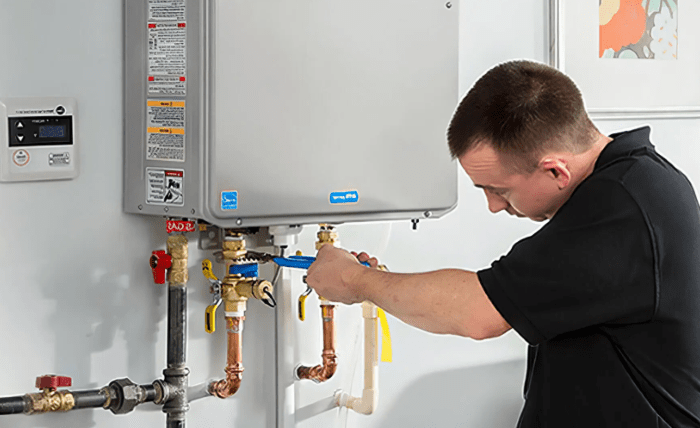Hot water is more than a luxury; it’s a necessity for daily comfort, from warm showers to clean dishes. If you’ve experienced fluctuating water temperatures or a lack of hot water at home, you know how frustrating and inconvenient it can be. Fortunately, maintaining a consistent supply of hot water doesn’t have to be a challenge.
This blog post will explore actionable steps to ensure your home always has reliable hot water, why regular maintenance is key, and how eco-conscious upgrades can help save energy and money. Whether you’re a seasoned homeowner, an eco-conscious enthusiast, or a DIY aficionado, there’s something valuable here for you.
Understanding the Basics of Your Water Heater
The first step to maintaining steady hot water at home is understanding the type of water heater you have. Water heaters generally fall into two categories:
1.Storage Tank Water Heaters:
The most common type, these store a set amount of heated water in a tank that is released when needed. While they’re effective, they can run out of hot water during high usage periods.
2. Tankless Water Heaters:
These heat water on demand, ensuring a constant supply. They are more energy-efficient but may struggle if multiple fixtures require hot water simultaneously.
Knowing your system’s type helps determine what maintenance or adjustments are necessary to enhance performance.
Routine Maintenance to Avoid Disruptions
Regular maintenance is the backbone of consistent hot water at home. Here’s how to keep your water heater in top shape:
1. Check and Flush the Tank
Over time, sediment builds up in storage tanks, reducing efficiency and limiting the tank’s capacity. To prevent this:
- Turn off the water heater.
- Attach a hose to the drain valve and empty the tank.
- Flush the tank by allowing clean water to run through it until the sediment is cleared.
Perform this task once a year or consult a professional if you’re unsure how to proceed.
2. Inspect the Heating Elements
For electric water heaters, heating elements can wear out or corrode over time. Inspect them yearly and replace any damaged components to maintain efficiency.
3. Check the Anode Rod
The anode rod prevents corrosion inside the tank. It attracts corrosive elements, protecting the water heater. If it’s heavily corroded, replace it—this simple step can extend your water heater’s lifespan significantly.
Optimizing Hot Water Supply for Large Households
If you have a high-demand household or frequently run out of hot water, consider these remedies:
Upgrade the Size or Efficiency of Your Water Heater
Large households with frequent users may need a larger tank or a high-output tankless system. Talk to local experts (such as those familiar with water heaters in Kaysville) about selecting a unit that meets your needs.
Install a Water Heater Booster
A water heater booster attaches to your existing tank and increases the amount of hot water it can supply. It’s an affordable solution to avoid replacing your current system.
Use Water Wisely
Stagger water-intensive tasks (e.g., running the dishwasher and washing machine) to prevent straining your water heater. Installing low-flow fixtures can also reduce the demand for hot water without sacrificing comfort.
Eco-Friendly Improvements for Consistency and Savings
Maintaining a steady hot water supply doesn’t mean you need to compromise on sustainability. Many energy-efficient upgrades improve hot water availability while benefiting the environment.
Insulate Your Water Heater and Pipes
Heat loss from water heaters and pipes is common, especially in older systems. Adding insulation to your tank and pipes keeps water warmer for longer, reducing energy use.
Invest in a Solar Water Heater
Solar water heaters use renewable solar energy to heat water, significantly reducing utility costs. While the upfront cost is higher, the long-term savings and environmental benefits make it worthwhile.
Opt for ENERGY STAR®-Certified Water Heaters
Choose ENERGY STAR® models that use up to 25% less energy compared to traditional models. These systems deliver reliable hot water while lowering environmental impact.
Signs It’s Time to Replace Your Water Heater
No matter how well you maintain your water heater, it won’t last forever. Knowing when it’s time for a replacement can save you from a sudden hot water outage. Signs you might need a new water heater include:
- Age: Most water heaters last 8–12 years. If yours is older, consider an upgrade.
- Leaks: Visible leaks around the tank indicate damage beyond repair.
- Rusty Water: Discolored water signals internal corrosion.
- Strange Noises: Rumbling or banging noises can mean sediment buildup or internal wear.
Maintaining Hot Water Through Seasonal Changes
Keep in mind that the efficiency of your water heater can vary with seasonal temperature shifts. During colder months:
- Increase the thermostat setting slightly to ensure water reaches a comfortable temperature (but keep it below 120°F to prevent scalding).
- Reduce heat loss by insulating exposed pipes, especially in basements or crawl spaces.
Call an Expert When Needed
While simple maintenance tasks can be handled on your own, certain issues require professional expertise. If you’re dealing with unresolved problems like recurring leaks, inconsistent water temperature, or sudden system shutdowns, calling an expert ensures the job is done right.
Local professionals experienced with systems like water heaters in Kaysville can assess and resolve your water heater’s performance issues efficiently.
Never Run Out of Hot Water Again
A steady supply of hot water requires regular maintenance, smart optimizations, and perhaps a touch of eco-conscious innovation. From flushing the tank regularly to exploring sustainable options like solar water heaters, there’s plenty you can do to ensure reliable hot water for years to come.
If your water heater is showing signs of wear or isn’t meeting your household’s needs, don’t hesitate to upgrade. It’s an investment that provides long-term savings, convenience, and peace of mind.
By taking these steps, you’ll never have to worry about an unexpected cold shower again. Ensure your family’s comfort and your home’s energy efficiency now—and if you’re in doubt about next steps, consult a trusted local expert.







